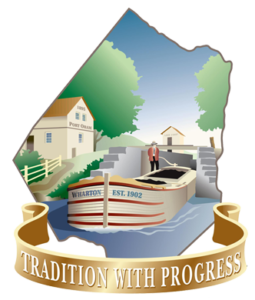Morris County Freeholder Board to Meet in Wharton on Wednesday
Published on July 01, 2019
Local and Area Residents Invited to Attend July 10 Meeting
The Morris County Board of Freeholders, as part of a continuing tradition of holding county government road meetings'' in towns across the county, will meet at the municipal building in Wharton, at 10 Robert Street, on Wednesday, July 10, at 7 p.m. (PNG, 146KB)
(PNG, 146KB)
It is one of seven county governing board meeting being held outside of the county seat in Morristown in 2019 as part of an effort to bring county government closer to constituents.
The freeholders met in Mendham Township on June 12, Chester Township on April 10, and in Florham Park on May 6, and also will meet on Wednesday, Aug. 14, Washington Township; Wednesday, Sept. 11, Montville; and Monday, Oct. 7, Riverdale.
The Freeholder Board likes taking county government on the road to the county's 39 towns so we can meet county residents where they live and work, and give them a chance to discuss issues of importance to them. It's also much more convenient for local residents and officials,'' said Freeholder Director Doug Cabana.
The freeholders last year met in Butler, Jefferson, Madison, Mine Hill, Mount Olive, Mountain Lakes and Roxbury.
 (JPG, 4MB) The Freeholder Board meet in Mendham Township in June
(JPG, 4MB) The Freeholder Board meet in Mendham Township in June
The freeholders meet twice monthly, usually on the second and fourth Wednesday of each month, at the County Administration and Records Building in Morristown. The public can comment at those meetings. The board also holds public work sessions on the mornings or afternoons of the second and fourth Wednesday.
A schedule of specific meeting dates, locations and times, and Freeholder Board meeting agendas are available online. For more information on county government, visit: www.morriscountynj.gov
Wharton History: On June 28, 1895, voters from the settlements of Port Oram, Irondale, Luxemburg, Maryville, and Mount Pleasant voted 143 to 51 to incorporate as a town under the name of Port Oram, which was the largest member of the group. These localities covering an area of two and a quarter square miles west of Dover were basically mine camps or housing for blast furnace and silk mill workers.
A mayor, six councilmen, an assessor and a collector were elected to govern this new borough, which had started life as an ore shipping port on the Morris Canal.